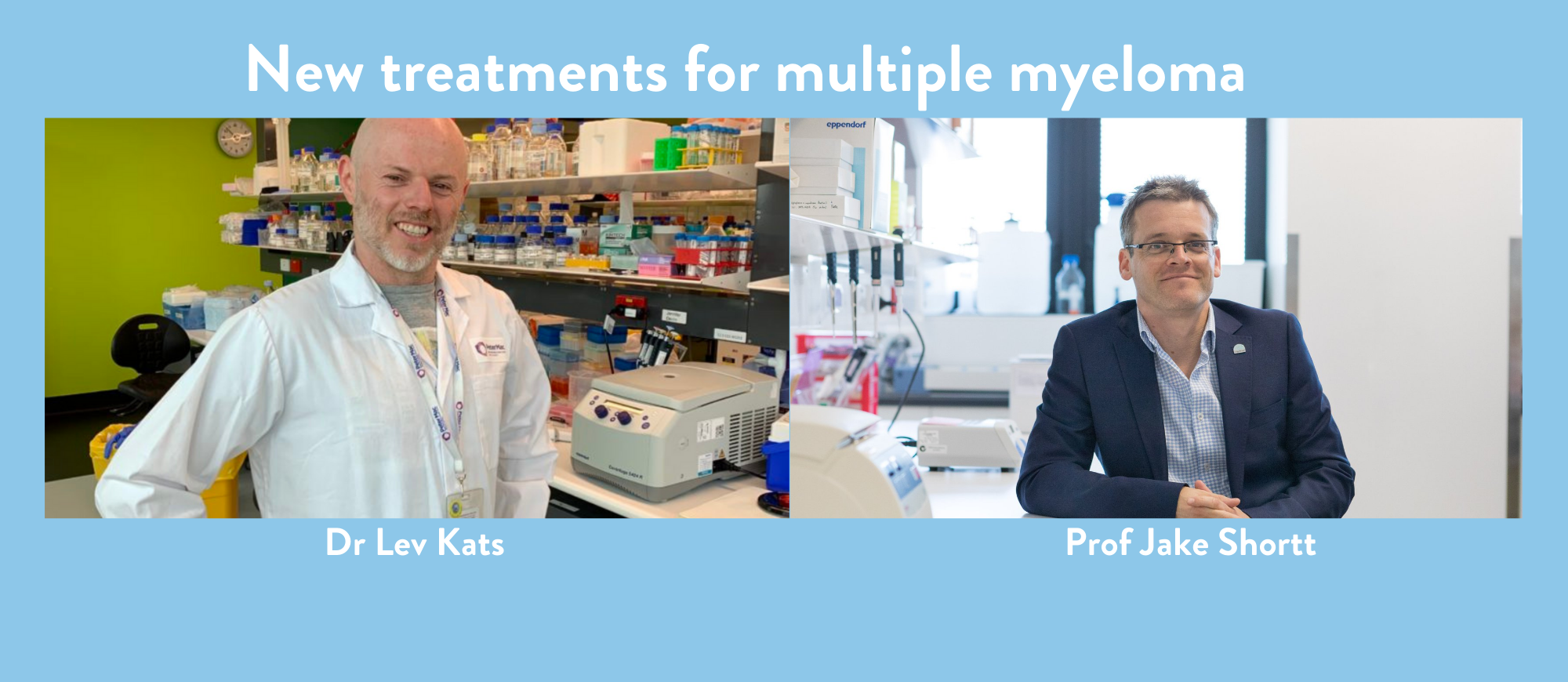Targeting DCAF as a novel treatment strategy for therapy resistant multiple myeloma

Congratulations to the recipients of the 2021/22 Leukemia Lymphoma Society – Snowdome Foundation – Leukaemia Foundation (LLS-SF-LF) Translational Research Program grant winners. This year the grant is awarded to a multidisciplinary research team including, Dr Lev Kats at University of Melbourne, Prof Jake Shortt at Monash University, Prof Philip Thompson at Monash University and Assistant Prof Chris Ott at Massachusetts General Hospital.
Multiple myeloma affects over 1,800 Australians each year. While it is still classed as an incurable blood cancer, great advances have been made in its treatment in recent years. However, there is still a group of multiple myeloma patients that do not respond to treatment and their prognosis remains poor.
Myeloma is unique as a blood cancer because some of the most active treatments, that have shown great success in the clinic, work by interfering with how protein is managed by the cell. The research team believe they have found a treatment target that might prove beneficial in multiple myeloma patients, including those with disease that is resistant to current treatments. The team propose that by targeting the cell pathway known as DCAF, which is involved with how cells utilise protein, they should be successful in reducing multiple myeloma cell survival.
DCAFs are used by many cell types to manage protein functions. Multiple myeloma cells are particularly sensitive to this DCAF pathway being interfered with, and cell death is achieved when the pathway is either blocked or hijacked.
The grant provided through LLS-SF-LF will fund the multidisciplinary team to identify the best molecule to target the DCAF pathway. Dr Lev Kats will provide cell biology knowledge, Prof Philip Thompson and Assist Prof Chris Ott will provide chemistry and drug development knowledge and Prof Jake Shortt will provide the clinical and therapeutic insight.
The team has already uncovered a drug that works well to interfere with the DCAF pathway in multiple myeloma cells. At present they have been able to kill myeloma cells through this novel mode of action in test tubes and animal models. The next step is to refine and optimise the drug so it can be taken by humans. The funding from the LLS-SF-LF grant aims to provide the team with adequate resources to refine their research and move their experiments into humans. The aim is to have a treatment that will provide maximum efficacy with minimal side effects.
